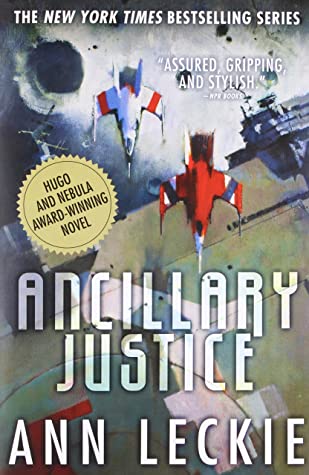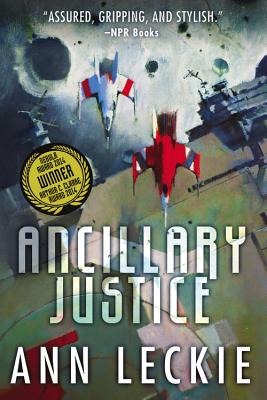

She also clearly sits outside the human race and the author does a miraculous job of describing such an observer, untied by prejudice or discrimination. It's written in such a way as to appear entirely natural too, not contrived or forced to fit. Gender then is very fluid, much more than I have read in a book before. She can speak many languages but is unused to gender pronouns and so assumes everyone is a "she" unless told otherwise. Although she is over a thousand years old she is socially naive.

One of the ways the book shines is that through the eyes of Breq we see a very different universe. It's this fracturing of a collective conscious along with Breq's role in it's journey that forms the main plot - moving between the present and journeys into the past as we learn what happened to the Justice of Toren.


What works in Breq's favour though is that these joined minds are not all working in harmony and war with each other, with the added complexity that each knows what the other is thinking. A task that could be seen as follow, impossible given that the consciousness of Anaander exists in a countless number of bodies. She now exists in a singular form and lives for vengeance, to Anaander Mianaai, the lord of the Radch. The book is narrated through the eyes of a most unusual protagonist.īreq is thousands of years old and at one time was the Spaceship "Justice of Toren" with a shared identity that comprised of thousands of soldiers. The main theme though is that of Identity. It's a bold, moving book that deals with gender, religion, persecution, discrimination, justice, artificial intelligence and the idea of non-human intelligence. It is a product of the now and deals with the topics that are most relevant in the 21st century. Ancillary Justice is the right book at just the right time. It would however be a huge mistake to think that Anne Leckie received such accolade for her gender. Women, much under-represented are beginning to finally gain some greater visibility and recognition. It's clear to see that the science fiction genre is changing, and much of that change is positive. The Hugo, the Nebula, the BSFA, the Arthur C Clarke and the Locus award (for first novel). Not only that but the awards it has won are most of the major ones in science fiction. Ancillary Justice has won more awards this year than any book before it.


 0 kommentar(er)
0 kommentar(er)
